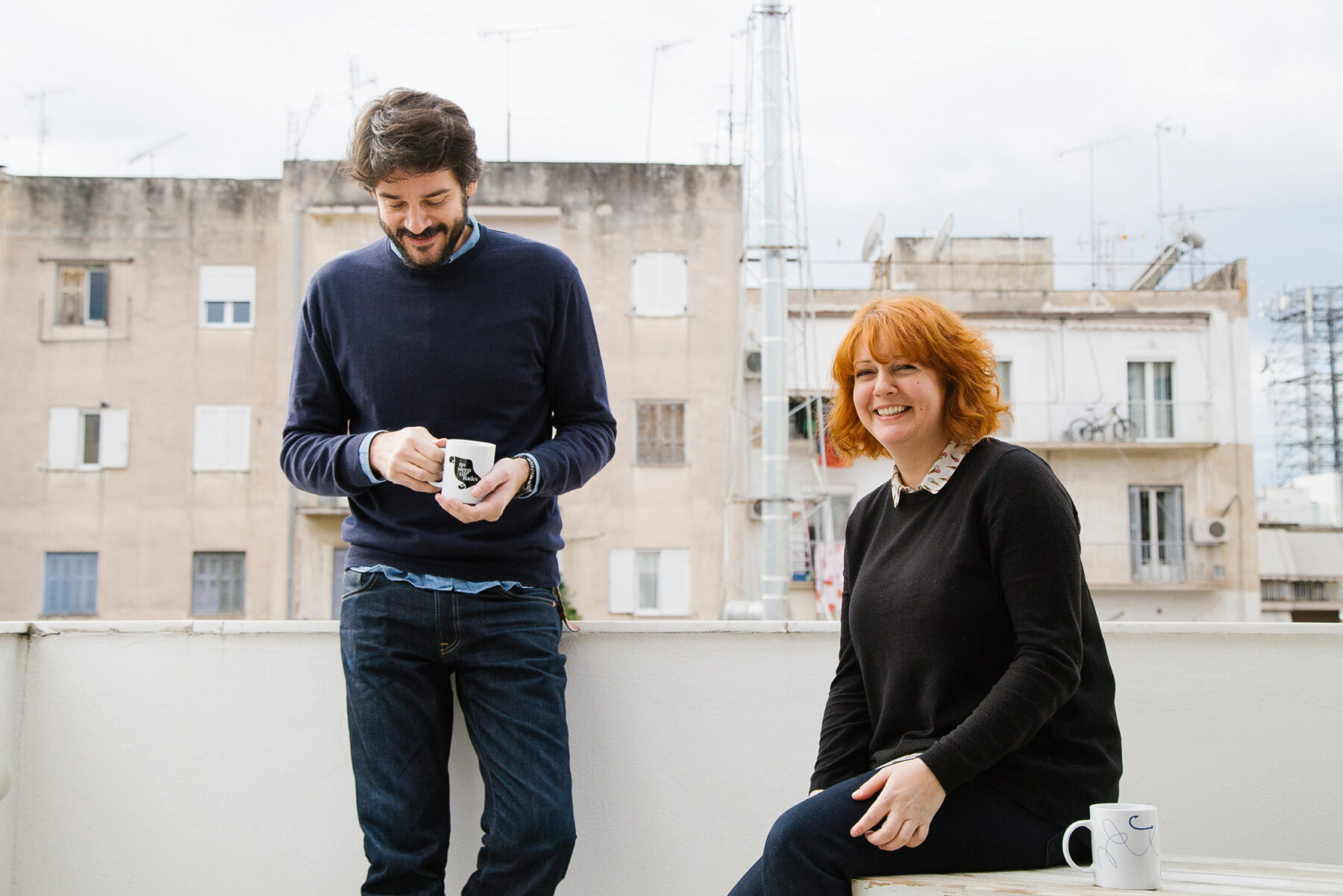“Greece is for Lovers” heralded a tourism campaign in the early 80s amid a general atmosphere of hedonism and illusory affluence in the country. Having stumbled upon this motto at a flea market, product designers Thanos and Christina adopted it as their name for a series of conceptual projects that stand between the lines of irreverence, cultural sacrilege and witty irony.
With a caustic sense of humor, their designs seek to redefine stereotypes, question deep-rooted dogmas and initiate dialogues on certain behavioral patterns under the umbrella of their aesthetic language. The notion of ‘greekness’ permeates their work as the duo draws from an inexhaustible supply of cultural references. Both Thanos and Christina admit to their obsession with kitsch sensibility and perform an ode to the decade of their teenage years – when Daryl Hannah in Summer Lovers and blatant eccentricity reigned.
In Exarcheia, a notorious neighborhood of socio-political significance often associated with anarchist groups and Athens’ intelligentsia, we visit their top floor studio to find more about their signature appropriation of symbols, decadent camp elements, the Orthodox Church as a tentacled enterprise in the name of religion, and the protagonist of it all, Athens.

-
What exactly informs your work’s ironic and witty nature?
Thanos: First of all, it’s a reflection of our characters and the fact that we don’t let anything go past us without making a comment. No statement drops on the floor with us. Of course, another component was our origins which we felt we had to redefine up to a certain point based on our personal experiences.
Christina: We always discussed starting a project that would draw stimuli and material from Greece, hellenism, deep-rooted habits and cultural stereotypes. This provided a common reference point and platform on top of which we were able to deposit our distinct experiences. The humorous and caustic nature emerges effortlessly as it’s something inherent to our everyday life.
-
Yes, you have a really distinct sense of humor. All of your creations project this intelligent self-sarcasm and mordant commentary on greekness. Can you tell me more about this?
Thanos: I think we just sort of dared to underline and demonstrate all these elements that irritate everyone and make them feel ashamed of their heritage. And because everything is a matter of context, it really intrigues us to position all these anathemas on an international pedestal in an aesthetically acceptable way and see what happens.
Christina: We believe that Greeks, largely due to the overbearing weight of their historical legacy, take themselves too seriously. We try to give this whole aspect a more lightweight interpretation – besides satire is also inextricably linked to what we consider our “revered package.” Satire is characterized by critical spirit and intelligent humor, both of these elements are signs of progress and evolution of a civilization, so we certainly uphold them.
Thanos: Also, I think the name that’s behind everything really contributes to that type of attitude.
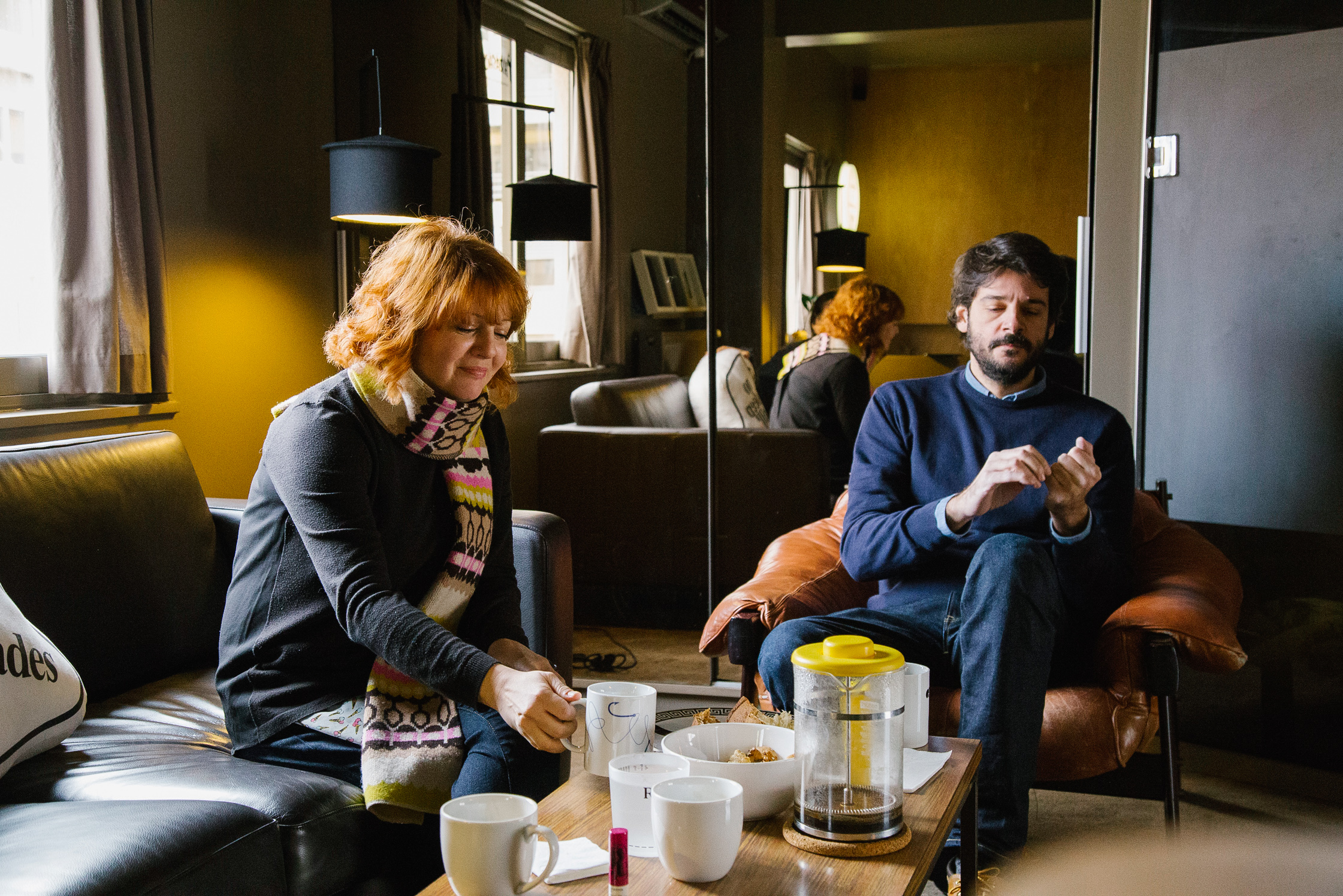

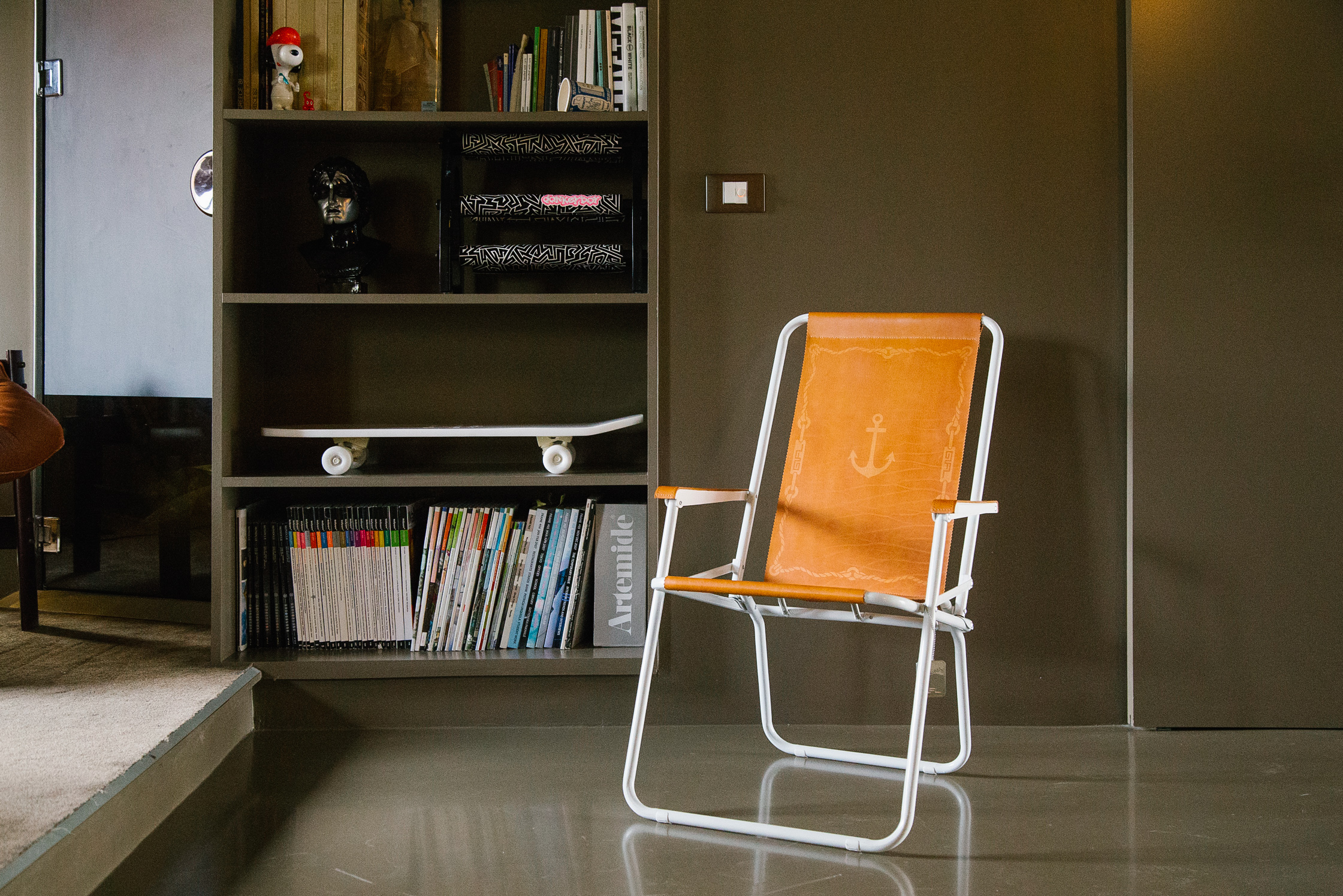
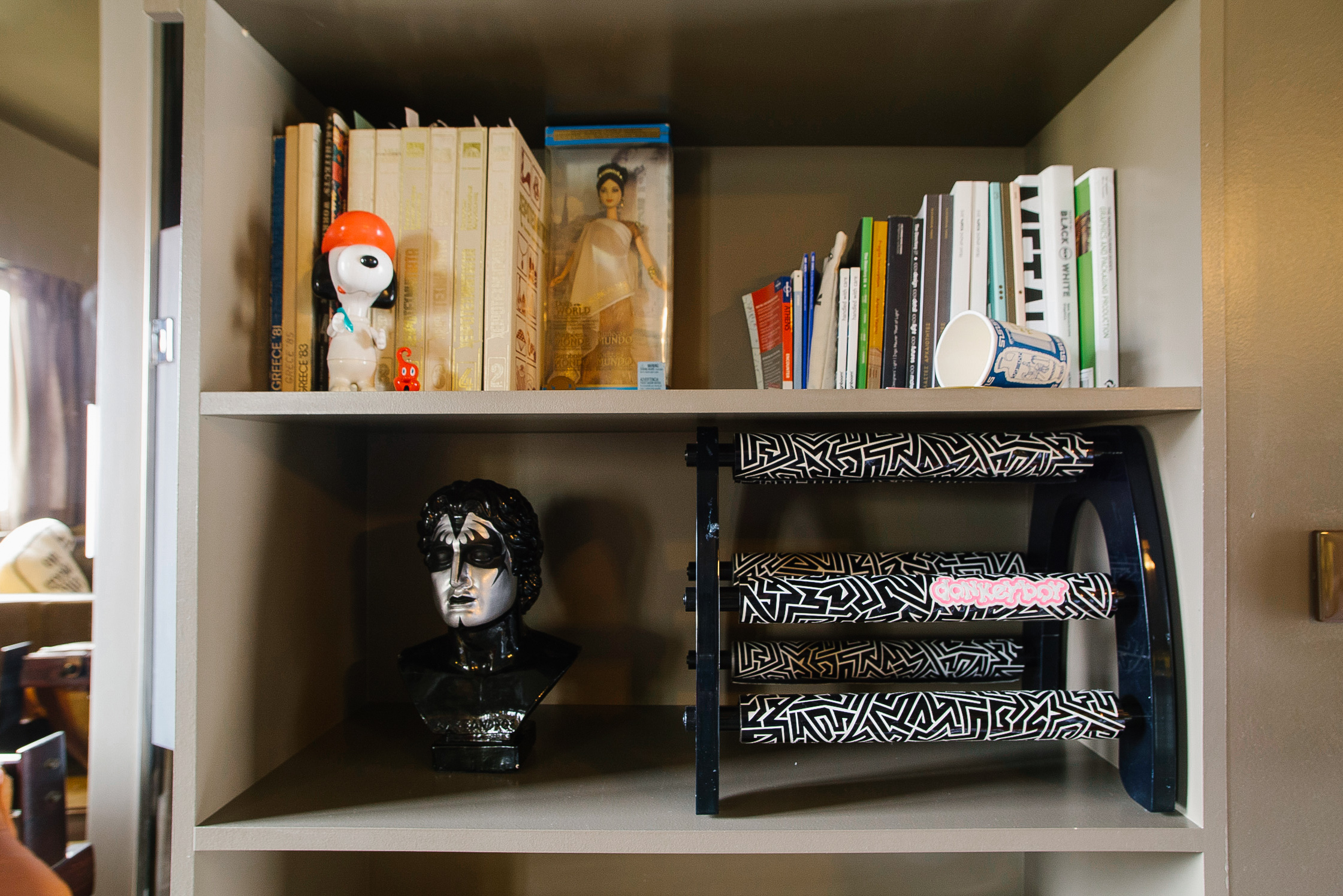
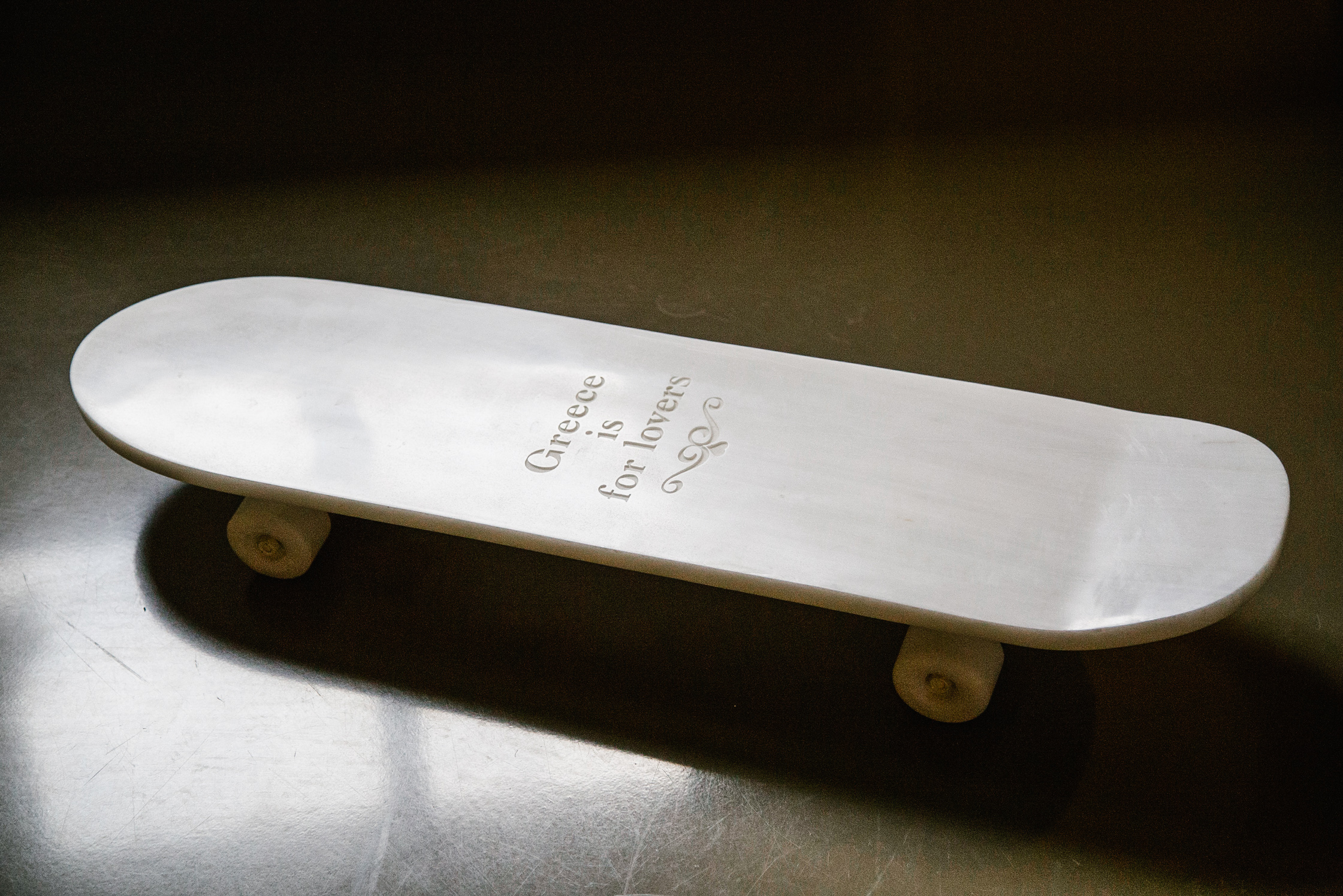
-
Where does the name come from?
Christina: It was a touristic motto for Greece in the early 80s, much like “Italians do it better” was for Italy. We found it written on a small badge pin at a flea market in London, and it just clicked.
-
Did your logo pre-exist?
Thanos: We looked around to make sure it was not registered and then we altered it a bit but kept the aesthetics of the typography. Speaking of the name’s registration, it’s a bit difficult as it contains the word “Greece” and the legal service that would grant said registry is an obsolete one. Also, people use “Greece is for Lovers” as a hashtag on Instagram for their holidays in the islands and it has been somehow spread as an unofficial slogan. Or someone might open a taverna with that name whether they’ve got the rights or not. It’s an easy name to come across, I guess
Christina: And it’s something that you might not ever notice. Maybe something with that name has opened somewhere, sometime.
Thanos: Speaking of appropriation, I remember years back, when I was younger, I went to Volos, a coastal city, and randomly found a restaurant that was a complete McDonalds replica.
-
No!
Thanos: (laughs) I kid you not! Some local guy had made his business look like McDonalds without ever acquiring a license for the franchise or anything. It was quite surprising: He even made the corresponding food packages and paper towels with a crudely forged “M” logo.
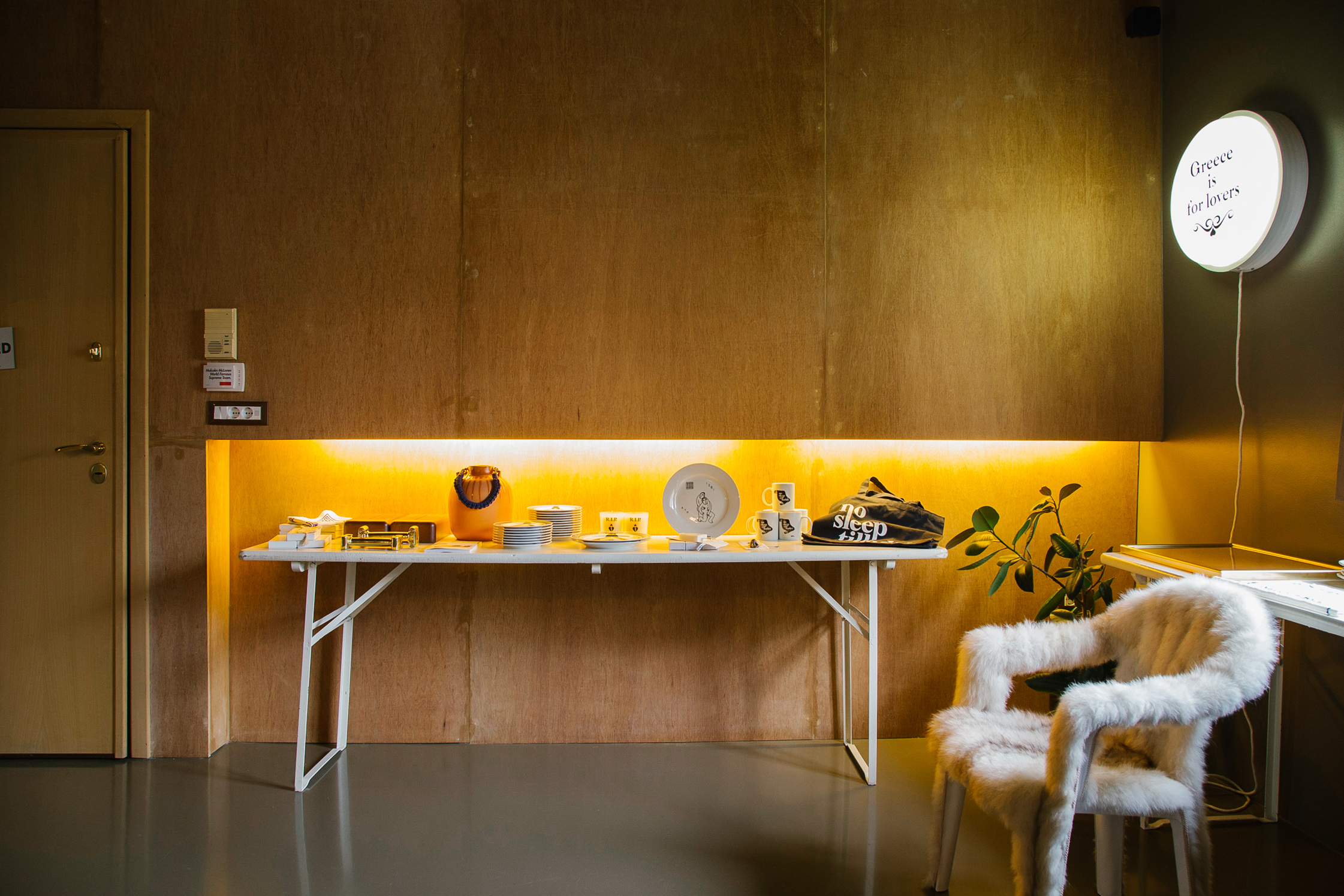

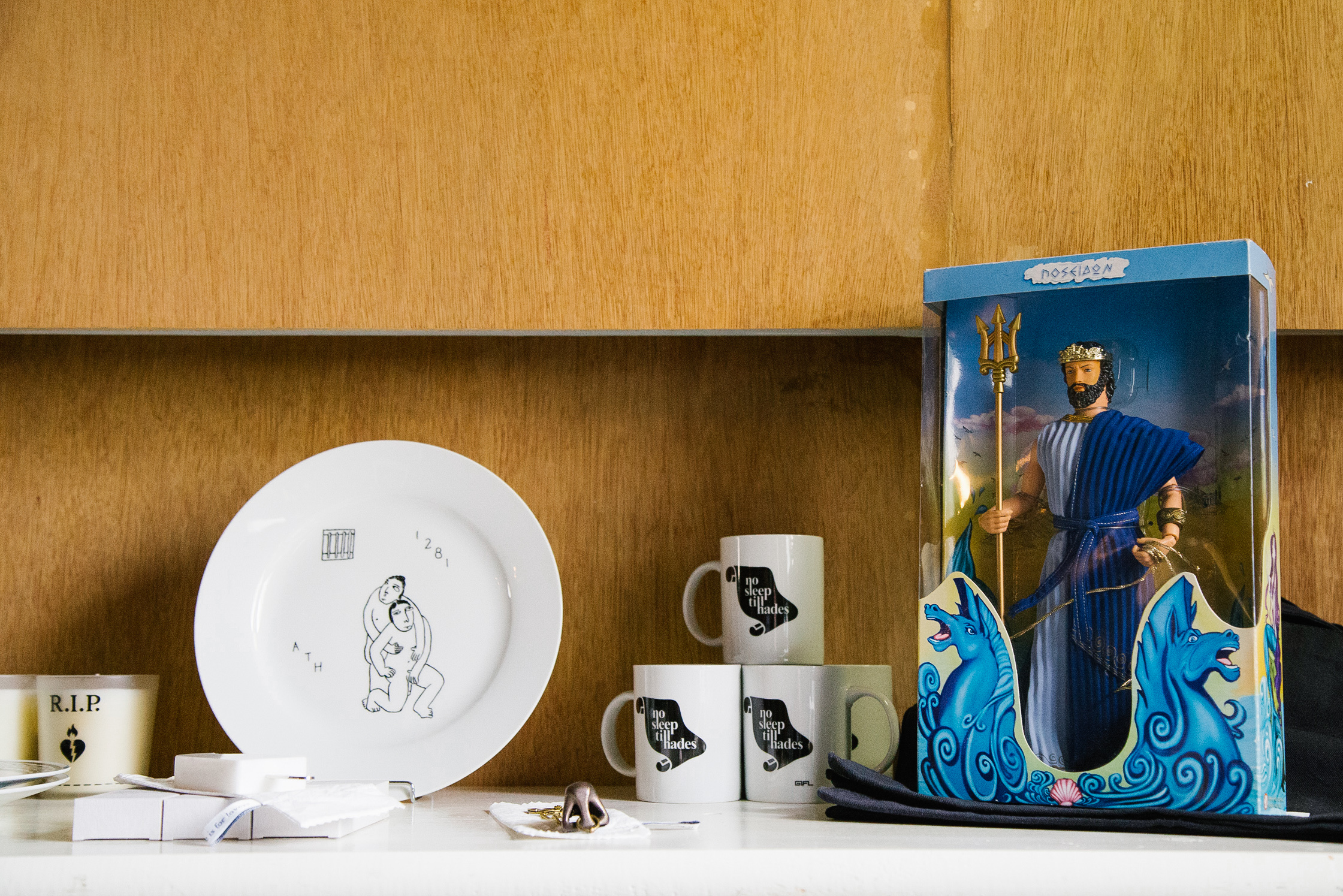

-
Let’s go back to your influences. You seem interested in the aesthetics that were prevalent in Athens in the 80s?
Thanos: Well, apart from it being the era we grew up in, it brings forth a strong visual language and a few unavoidable elements that are not highly esteemed or valued. Lately, there’s been a growing interest in that period in Athens. Our reference points go from commercial malls left behind from that period, a Greek drama series called The Camping and films like Summer Lovers with Daryl Hannah in Santorini.
Christina: It goes back to what we said about the logo and the fact that we like the irony that’s attached to the name.
Thanos: We never made fun of this whole kitsch ideology, it’s our visual vocabulary and common denominator. For example, in Athens you used to see these mushroom garden lights everywhere. People were kind of attacking this aesthetic, they thought it was too ugly. We, on the other hand, perform a sort of ode to it through our concept.
Christina: And we never did it patriotically. For many people it has really come out like this, in a nationalistic way trying to state that “Greece is better than anyone else” and whatnot – in a sense, we poke fun at this dogmatic belief Greeks tend to perpetuate.
-
What other characteristics of that era fuel you? It was a decade of eccentricity, innovations and a general feeling of prosperity. Is that why many of us look back to it often – for its admittedly positive character?
Thanos: It was a very extroverted period when the country had a clean slate as it had just been liberated from dictatorship and was searching for an identity among the rest of the countries in Europe. Their first contact to that world was through tourism. We look back and perhaps mythologize that era with its makeshift aesthetics that were oftentimes done in bad taste but had a strong attribute of love and positive energy. We liked that capsule of time in Greece because of its hedonistic personality. For example, just by taking tourism into account, it was very erotic, you could even say it was more like a promotion of sex-tourism! (laughs)
Christina: That decade was for many the golden era whereas for others a wasted, futile decade. The Greek society experienced profound transformations and for the first time new cultures, influences and behaviors came into play. It’s a decade that left a considerable amount of remnants and references in pop culture, architecture and a handful of design fragments scattered here and there.




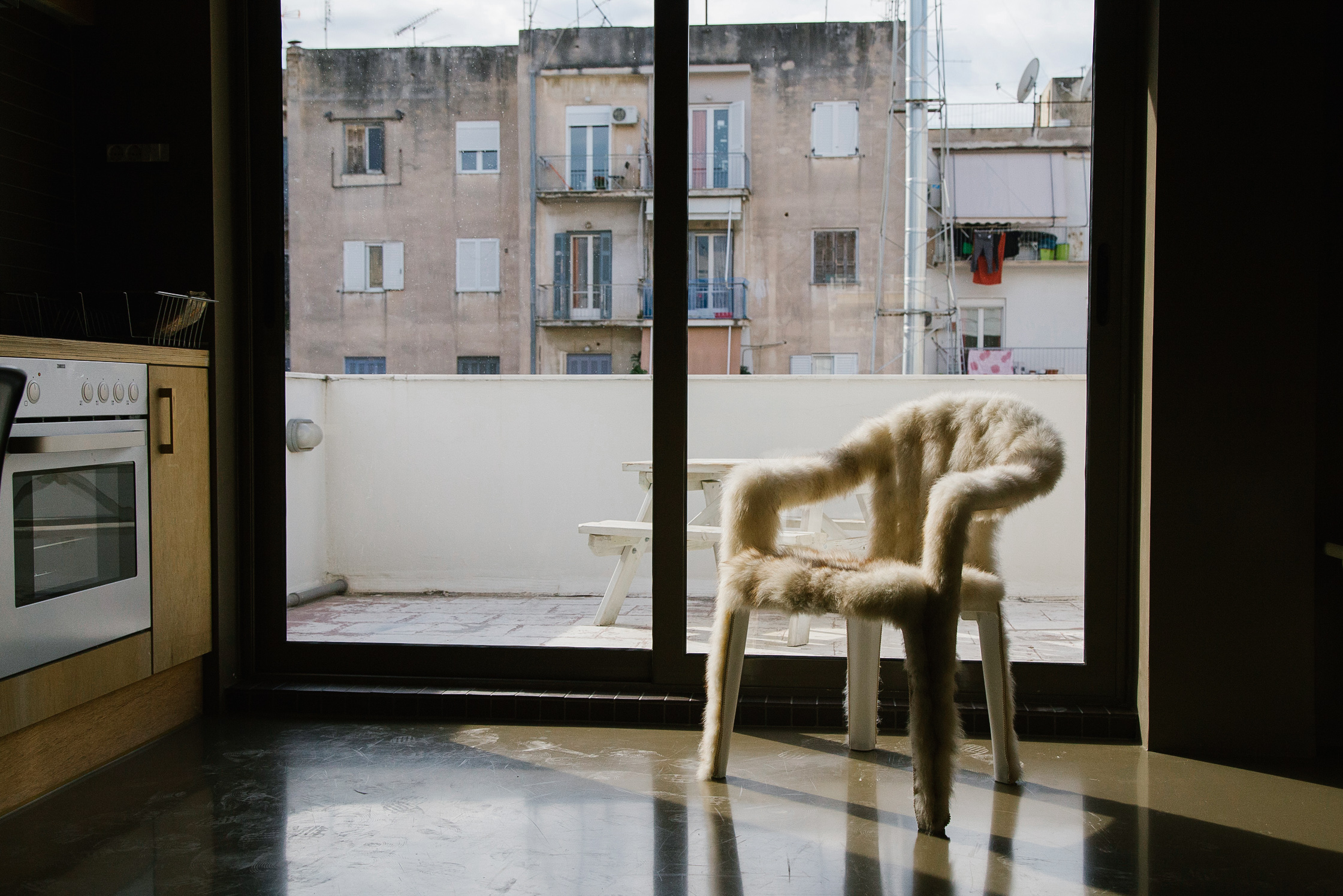
-
As you mentioned, kitsch is a common reference in your work. What’s the beauty you find in it from your own viewpoint and how do you choose to redefine it?
Thanos: Kitsch, in the way we choose to define it, consists of a certain innocence and passion from the creator’s side, which we absolutely adore. A poorly designed cement fountain lined with seashells, possibly found at a typical taverna, could be the epitome of bad taste for some, however it is characterized by a strong amount of passion and love that transforms it into something raw, pure and, essentially, beautiful. It depends on the associations you decide to make in relation to the object in question. The type of kitsch we try to reproduce through our work pays tribute to the original symbols and imagery inscribed in our memories while growing up in Athens and spending our summers of insouciance in the countryside and islands.
Christina: Kitsch and Camp are two elements we perceive in a very different way – we not only love them but also grant them special value. Speaking from a personal perspective, aside from the ironic and humoristic component, it’s also something very honest that procures a certain quality and speaks directly to emotion without the need of complicated analysis and logical explanation.
-
I also notice a number of religious references in your work.
Thanos: I think naturally a designer who’s interested in Greek symbolism and stereotypes couldn’t remain indifferent towards the Orthodox Church. Certain pieces directly comment on the church’s attitude of vanity – very much relevant to a certain boudoir element, as Marquis de Sade describes it.
Christina: For many people, religion still remains a highly sensitive topic, a no-go area that they’d rather not approach in a critical manner. For us it was more like another challenge or border to push, another fertile field for exploration, commentary and criticism through a subversive viewpoint. We’re positioned between the lines of satire and sacrilege.
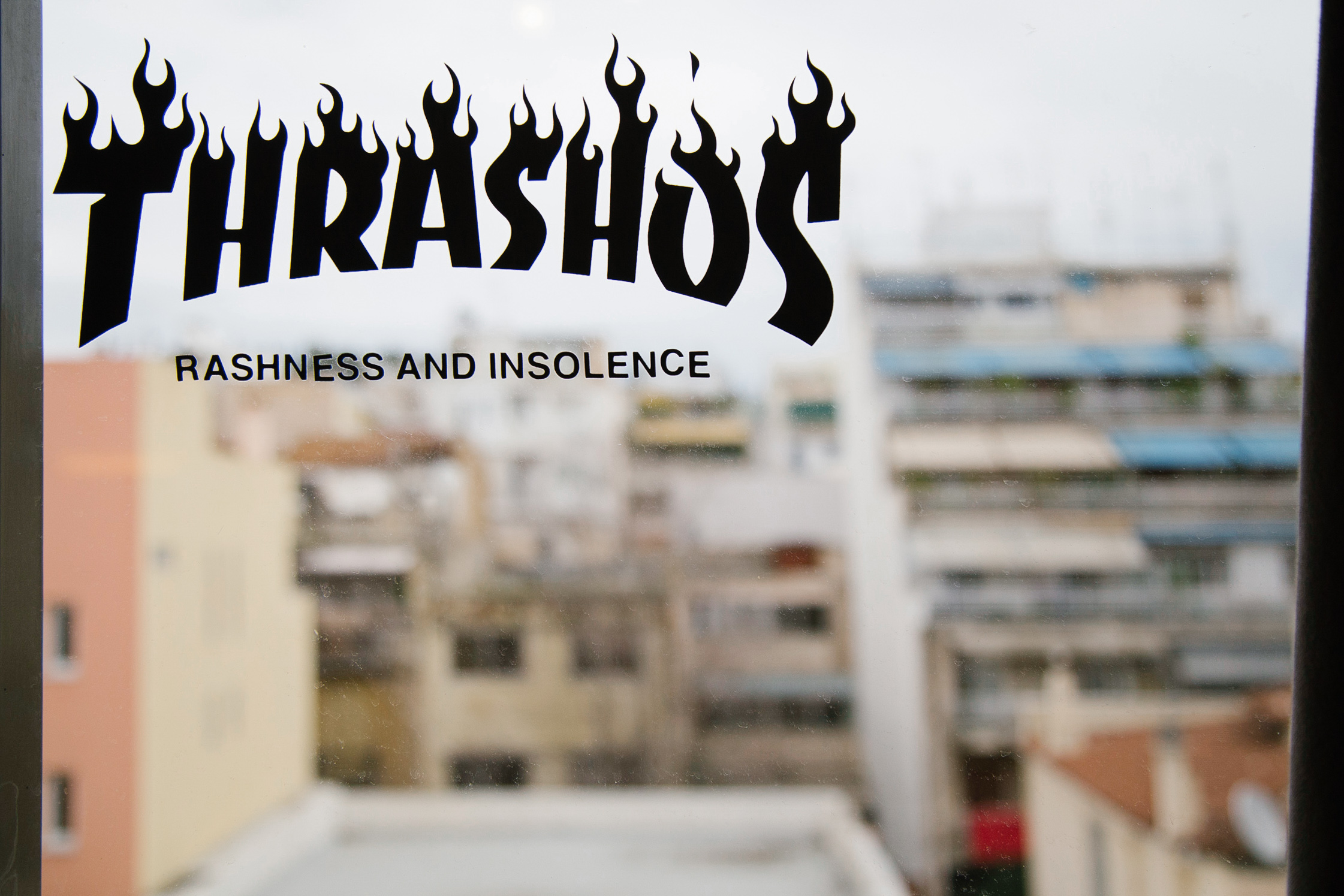
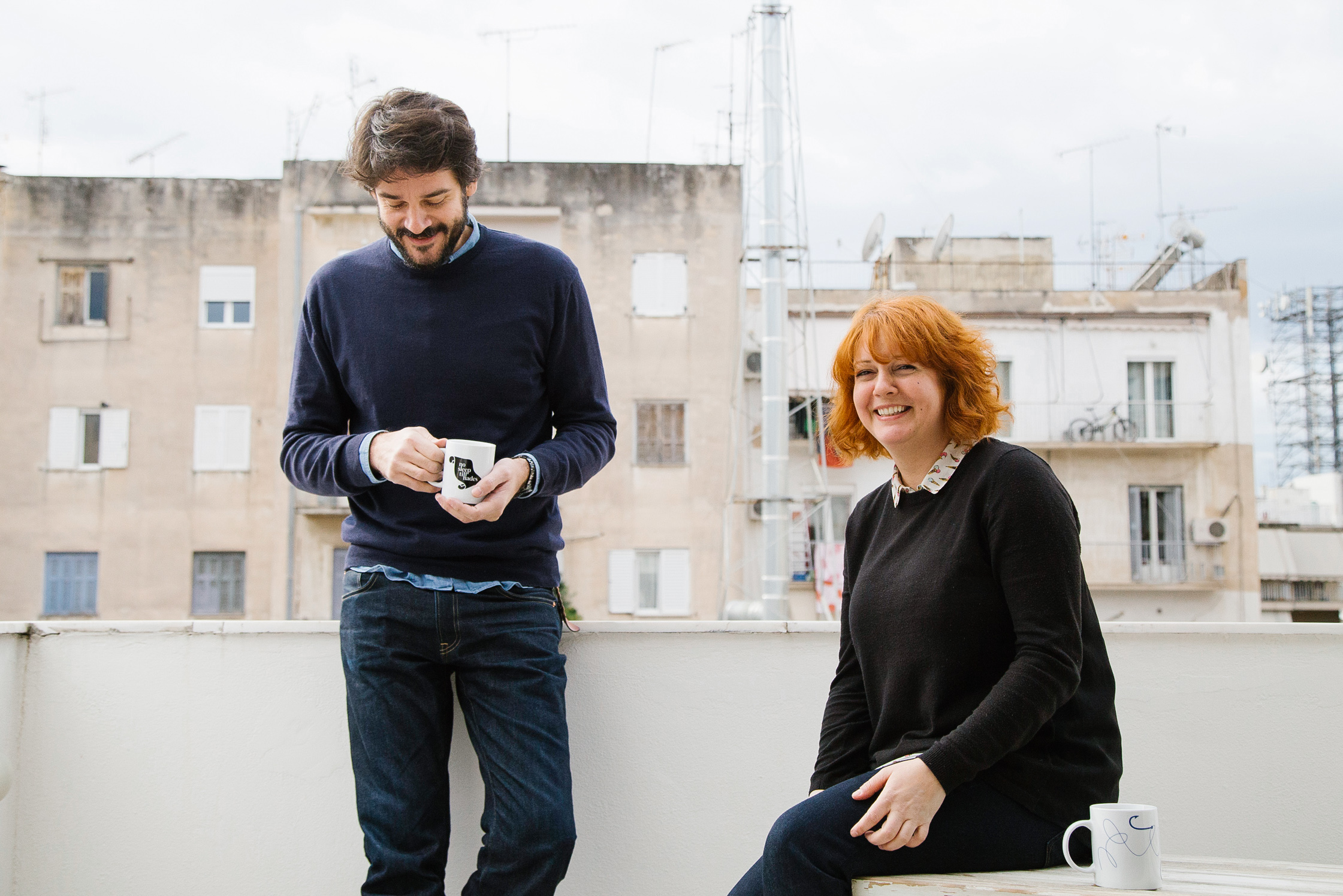

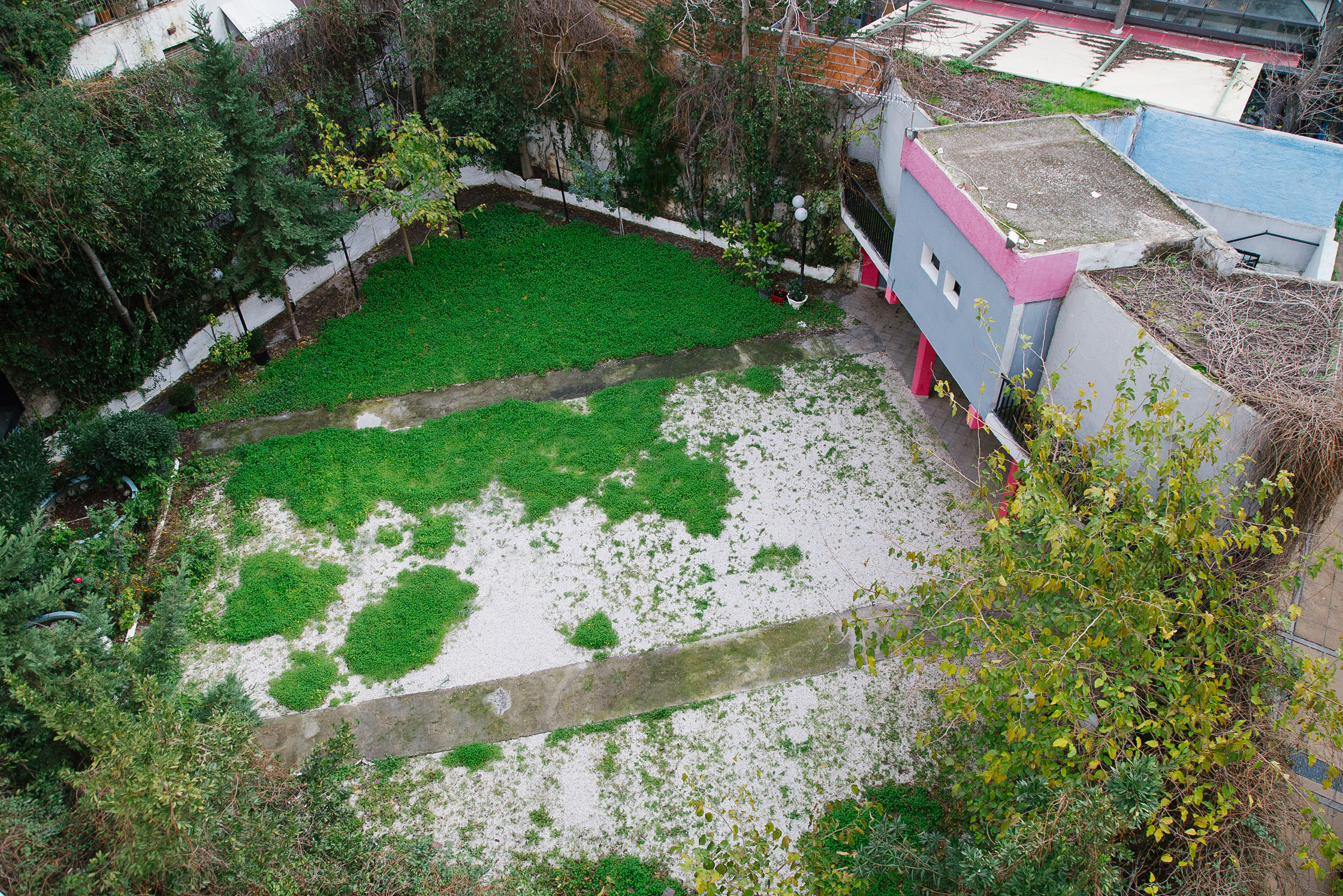
-
What’s your relationship to the Greek Orthodox church then, what do you think of its strong presence?
Thanos: We oppose the way the Orthodox Church inflicts themselves onto Greek citizens. Its presence functions considerably in a franchise way, more like a well-established enterprise that utilizes a very particular set of branding tools to expand through various church-shops. Of course, from a design perspective it is very interesting to observe these behavioral patterns and the wide use of symbolism. Having grown up with the constant presence of church through the educational system, which renders it obligatory, but also by attending numerous Christian family holidays, we’ve been steeped in this specific visual language. This rich, larger than life, maximalist iconography follows us.
-
I wonder if your international audience grasps all of your cultural references and humor. For example, the handknit ipod case and the ubiquitous white plastic chair seem like parallels that only someone Greek could draw and recognize.
Thanos: It’s true but people from other countries, and especially English speaking ones, understood our concept and idiosyncrasies right from the start. And let’s not forget that for many generations, all these people from abroad have been visiting Greece and witnessing these elements we’re referencing. In comparison, the Greeks were initially very cautious about it, perhaps because we uncovered the ugliness under the carpet and showcased it in a guilt-free, unapologetic way.
Christina: Many things that we consider exclusive can be easily detected and perceived on an international level.
-
How’s the situation in Athens?
Christina: It makes you want to burst into tears. (laughs) No, look, lately the atmosphere is getting better because up until recently there was a really negative climate and absolute misery. It was quite intense, you could feel it. Now, everyone has started doing better, not necessarily on a financial level but more psychologically.
We relocate to a nearby cafe as the sun slowly appears after a rather gloomy morning.
Christina: The scenery outside is so typical of Athens. The chaotic skyline of cables, electricity towers and antennas…So, as I was saying, in Athens there are a lot of things that annoy me but then again there are so many things I enjoy, like my home and the fact that I have made it the way I like, you know? And don’t forget that when you live in Athens you have to leave frequently. Every two months spent here, a small bell inside your head starts to ring and says “Go travel! Get out of here!”
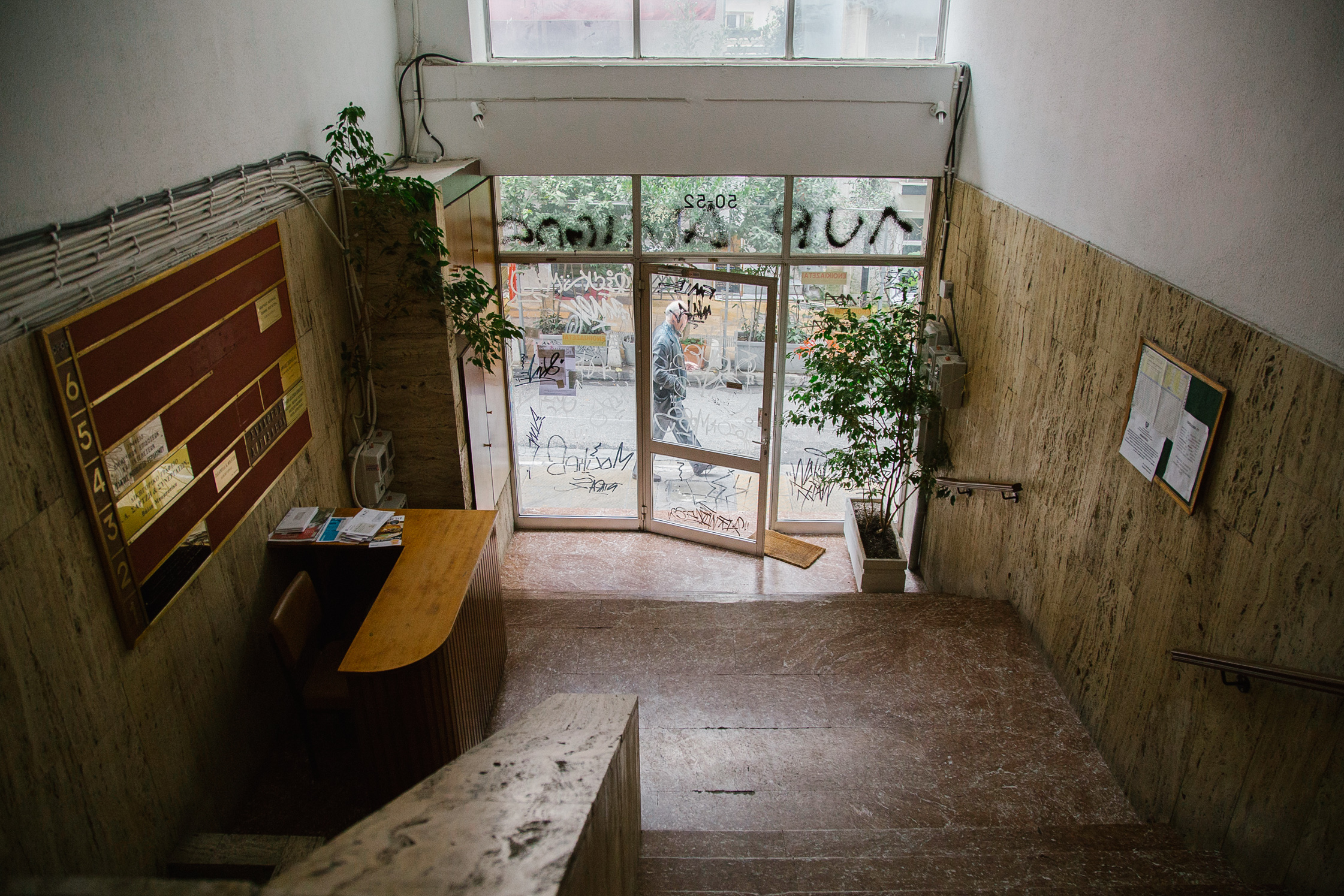
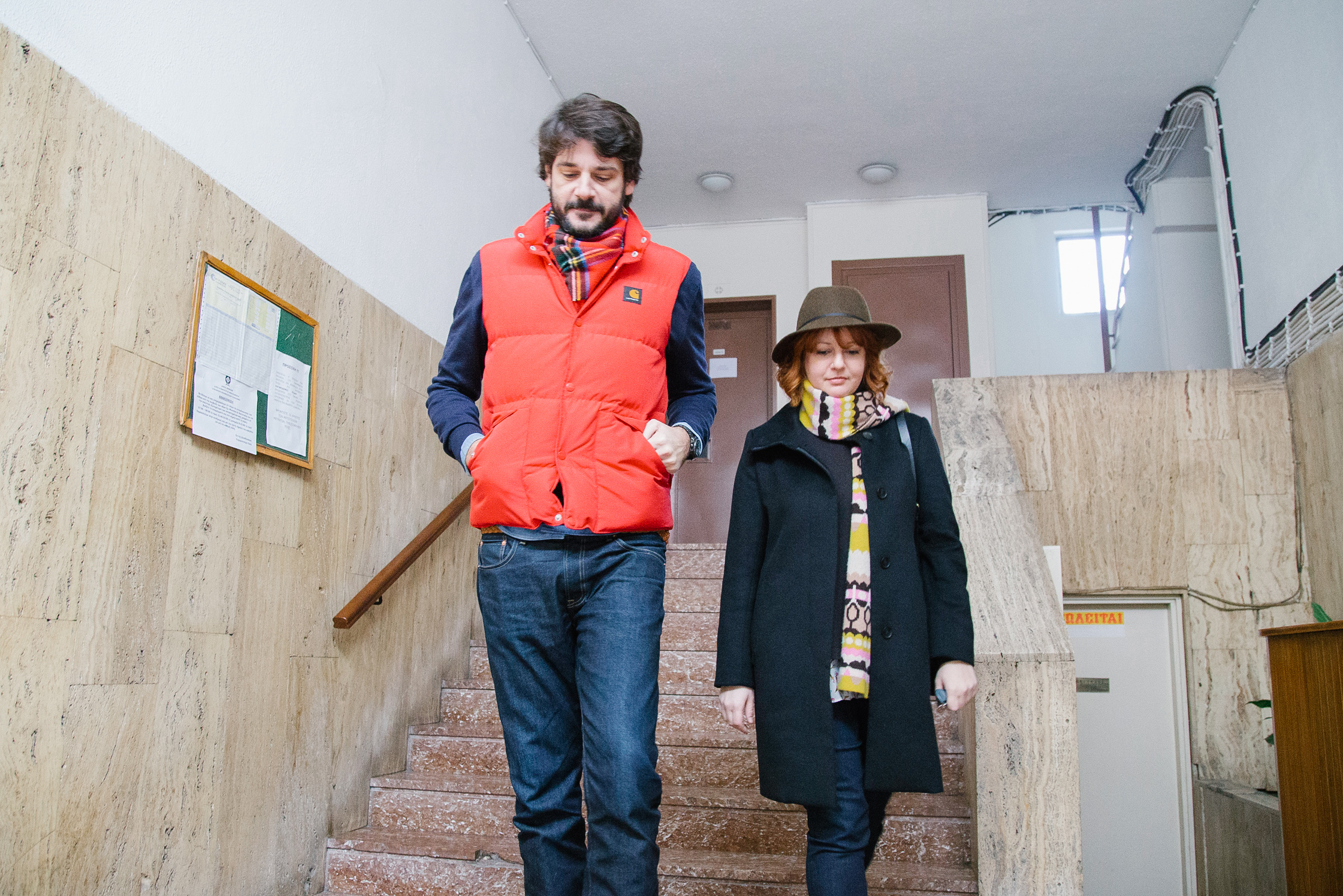
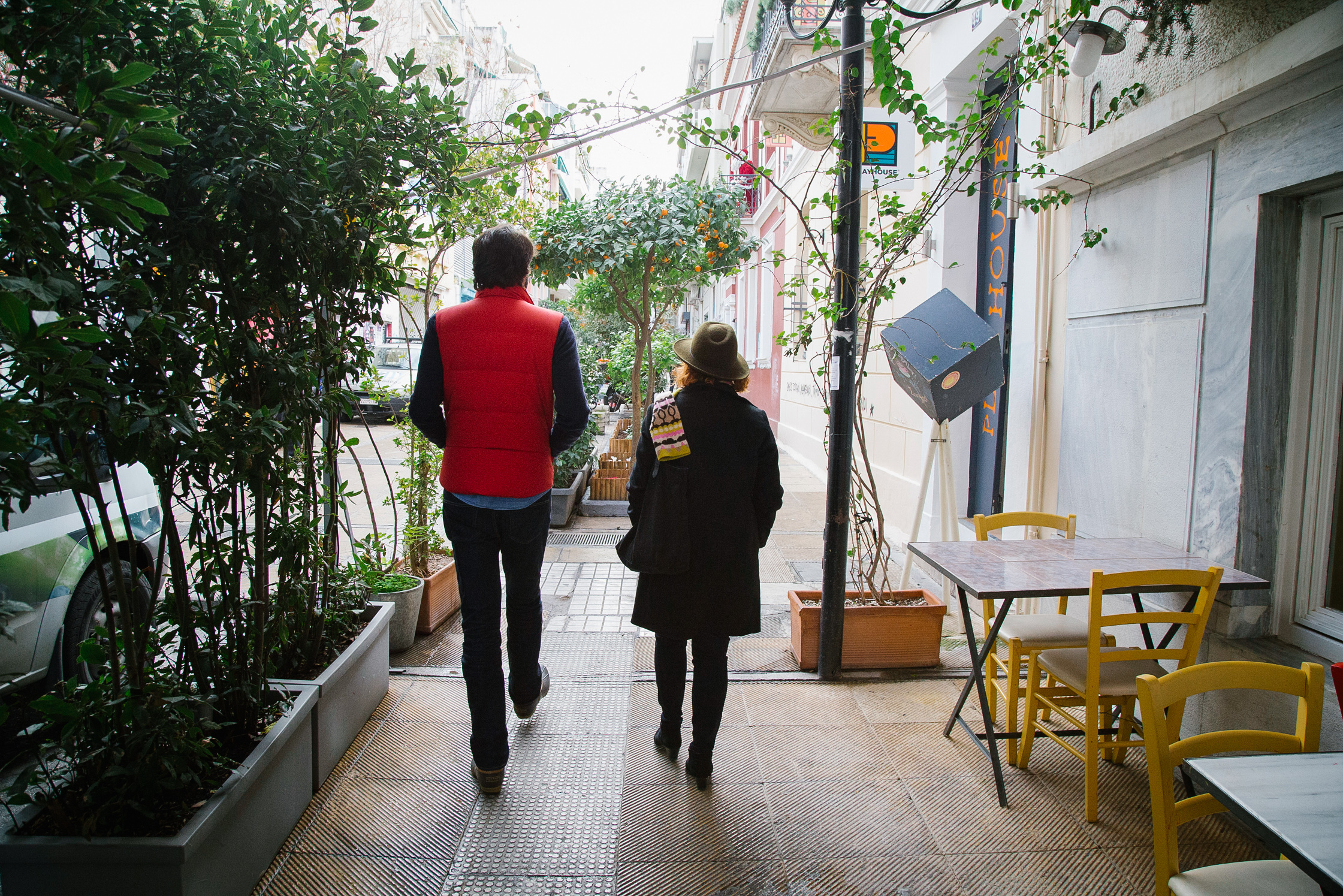
-
And in the creative industry?
Thanos: The creative industry’s main problem here is that people don’t pay. Other obstacles are expected more or less everywhere else. But here, for example, someone might come up to you for a collaboration and they’re not willing to pay anything.
Christina: Yes, it’s crazy. They come to you and then they either disappear or don’t say anything at all and they take it for granted that you’re going to do the work for free without even discussing it. And then they are surprised that you expect to be paid your fee.
Thanos: Remuneration is a taboo in Athens. Especially when it comes to the creative industry. It’s unacceptable that your fee is a grey area because it’s your work and you have to be paid for it. It shouldn’t work like that. After a certain point, everyone gets accustomed to this notion and it continues to work like this. Being anti-professional is one of the biggest problems and people don’t realize that this behavior will come back to them like a boomerang.
-
In terms of your relationship to the city, is it a love-hate thing?
Thanos: It’s definitely a love-hate relationship since Athens is our home and homes are always warm and sweet but at the same time have something painful about them. Having said that, I’m glad I grew up in the Athenian suburbs at that point in time, mainly because of the visual influences I had through fellow students, friends and peers from other areas. I truly believe this was my real education in the field of design. Numerous contemporary styles and subcultures from abroad, mainly coming from England, were so interesting to us that it almost turned into monomania and fetish.
Christina: Athens is a city with very well-hidden secrets. It requires patience to overcome daily difficulties and hurdles but often enough it rewards you for it. Maybe it’s simply because it’s the city we grew up in, maybe it’s just a feeling that’s attached to certain times and eras – the only certain thing is it’s a city that doesn’t leave you indifferent.
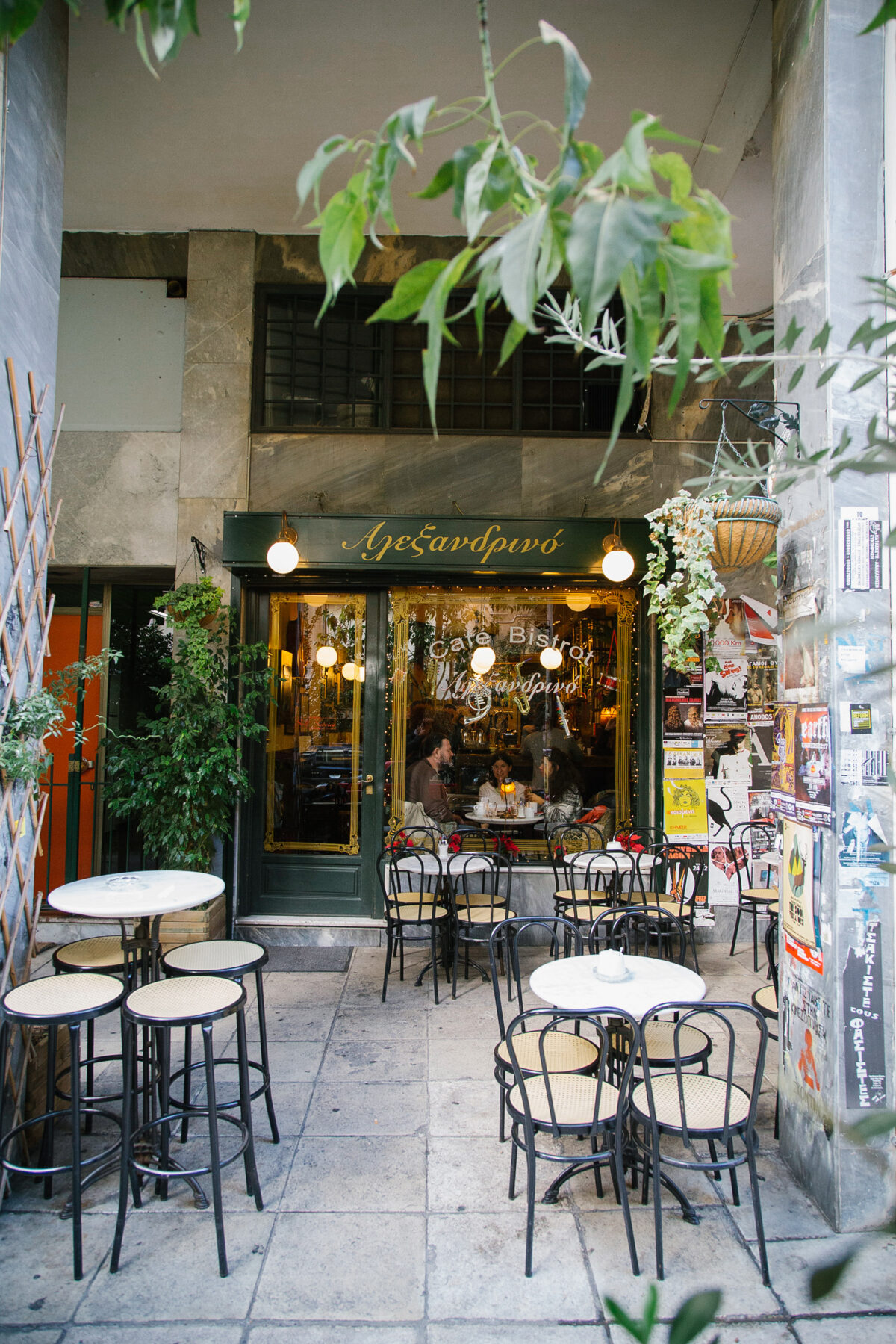
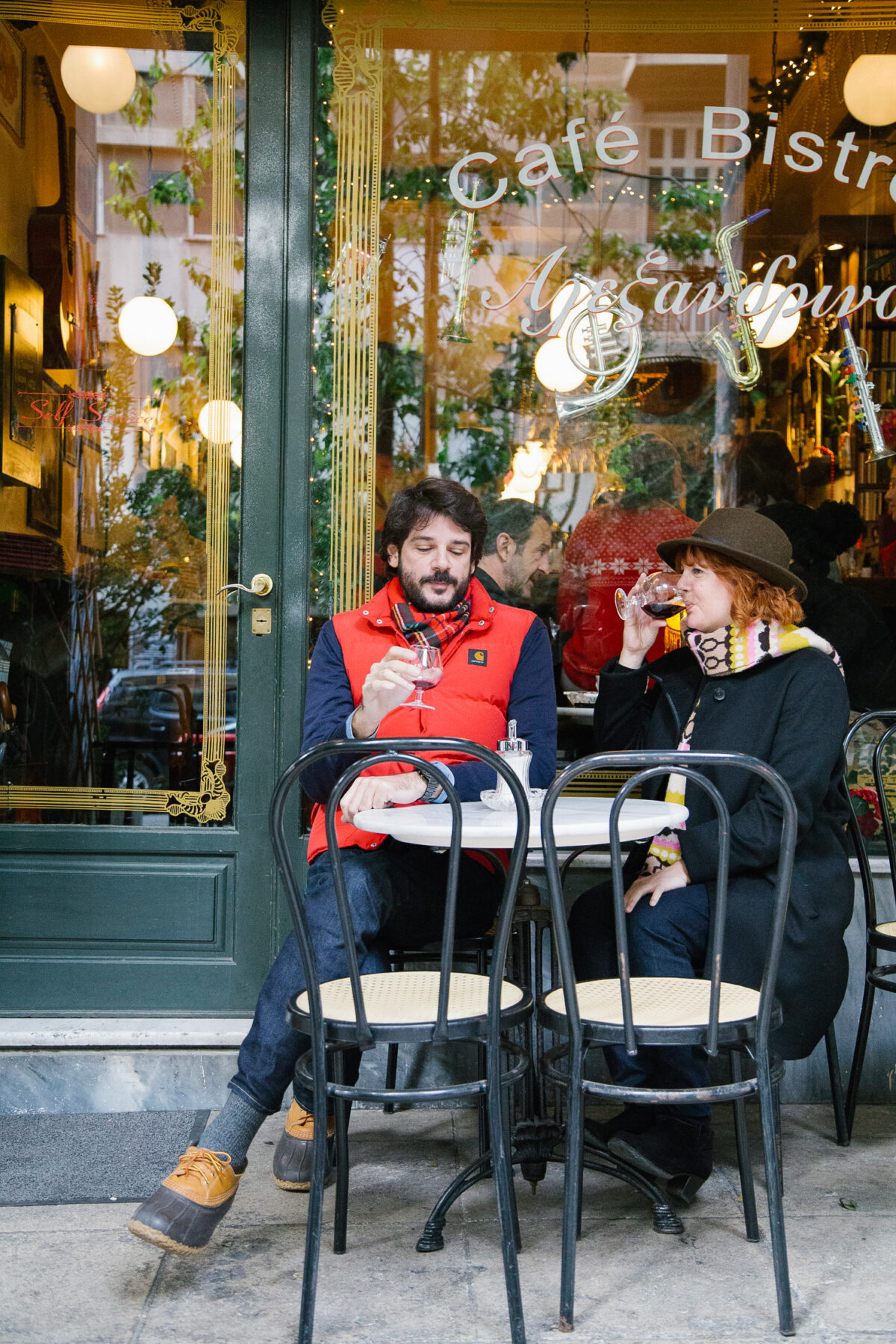
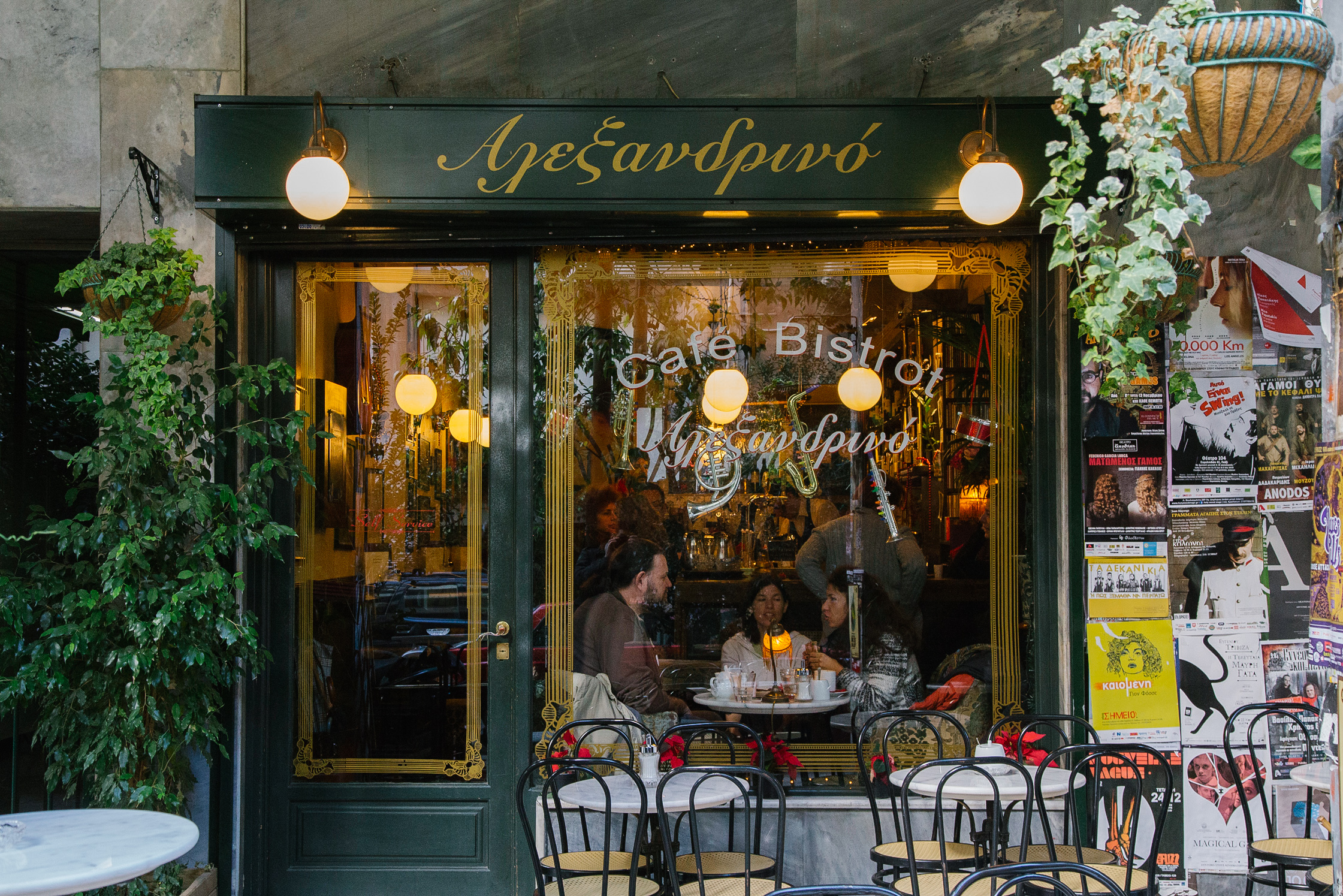
-
I personally see Athens as an amalgamation of the obsolete and modern, the unsightly and conventionally beautiful, the rundown and clean. Everywhere you turn your head there’s a contradiction. What do you think the capital says about its people’s mentality?
Thanos: Yes, it’s more of a rally of variegated buildings, different from a conventional city with an organized infrastructure. It’s a chaotic place both aesthetically and functionally. I think it completely reflects the psychosynthesis of its inhabitants that are torn between a bizarre fascination with neoclassical buildings and the old town that they never knew, and a disregard for anything westernized, dynamic and confident in its modernity.
-
Greece is going through a rough financial patch at the moment and many have observed an artistic resurgence in the capital. What do you think?
Thanos: Most people are finally allowing themselves to try out everything they’ve been putting off until the crisis erupted, and chase after certain dreams or aspirations that were instinctively buried underneath layers of conventional demands and the guilt that follows when one doesn’t abide by them. Clearly this is a good thing. The more creative endeavors the better. I don’t know if we could call it an artistic resurgence but what’s important here is that these endeavors should be directed to an international audience and pave new paths outside the borders. In the end of the day, we truly believe that Athens is a metropolis that has a lot of interesting things to say and add to the international spectrum.
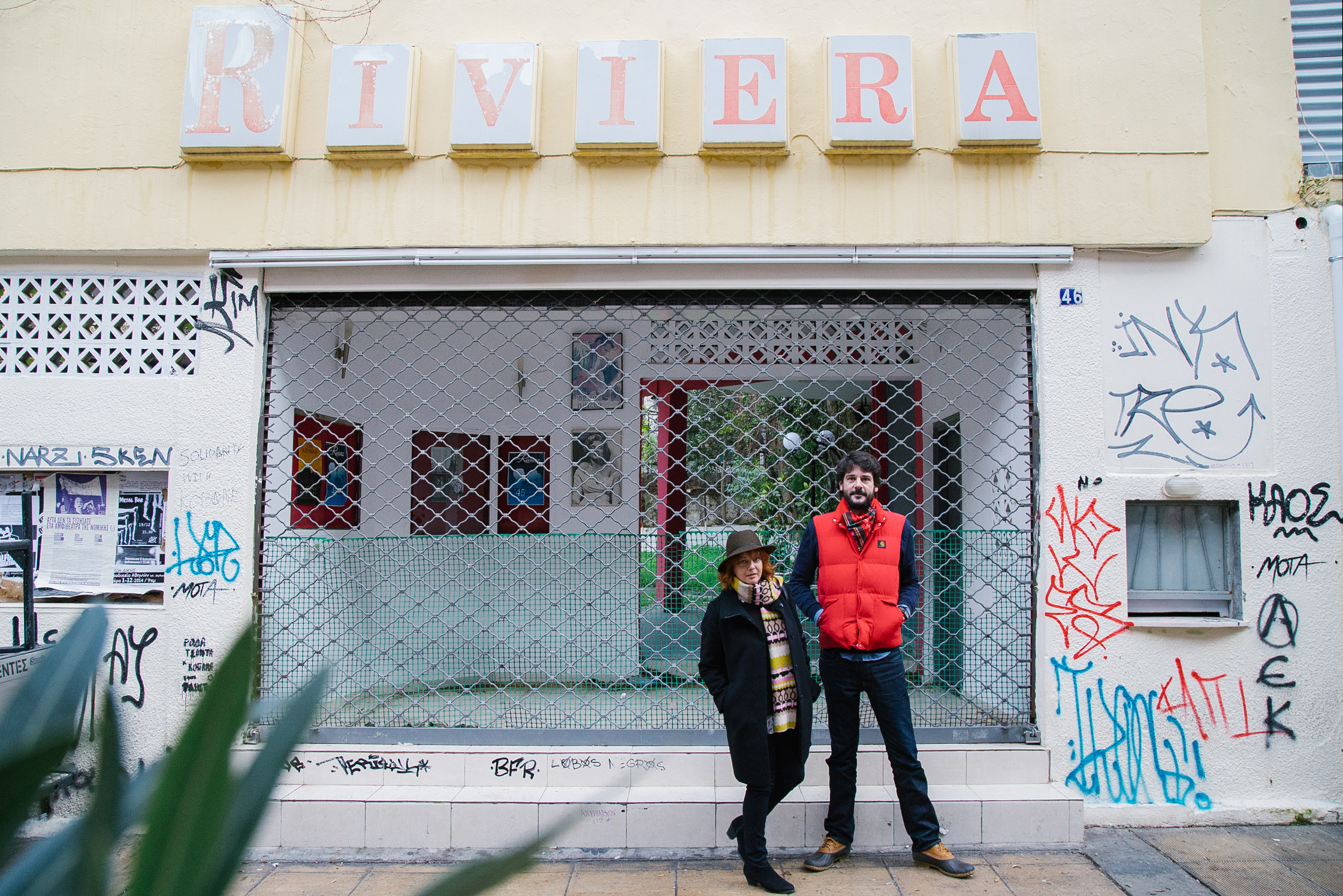
Thanos and Christina, thank you for this engaging conversation and the lovely drinks at Alexandrino bar!
Head over to Greece is for Lovers‘ website to see more of their witty products.
This is our first time in Athens and we plan to keep the content coming from this vibrant city. For more interviews with creatives, browse through all the cities we’ve visited so far.
Photography: Alexandros Ioannidis
Interview: Effie Efthymiadi
